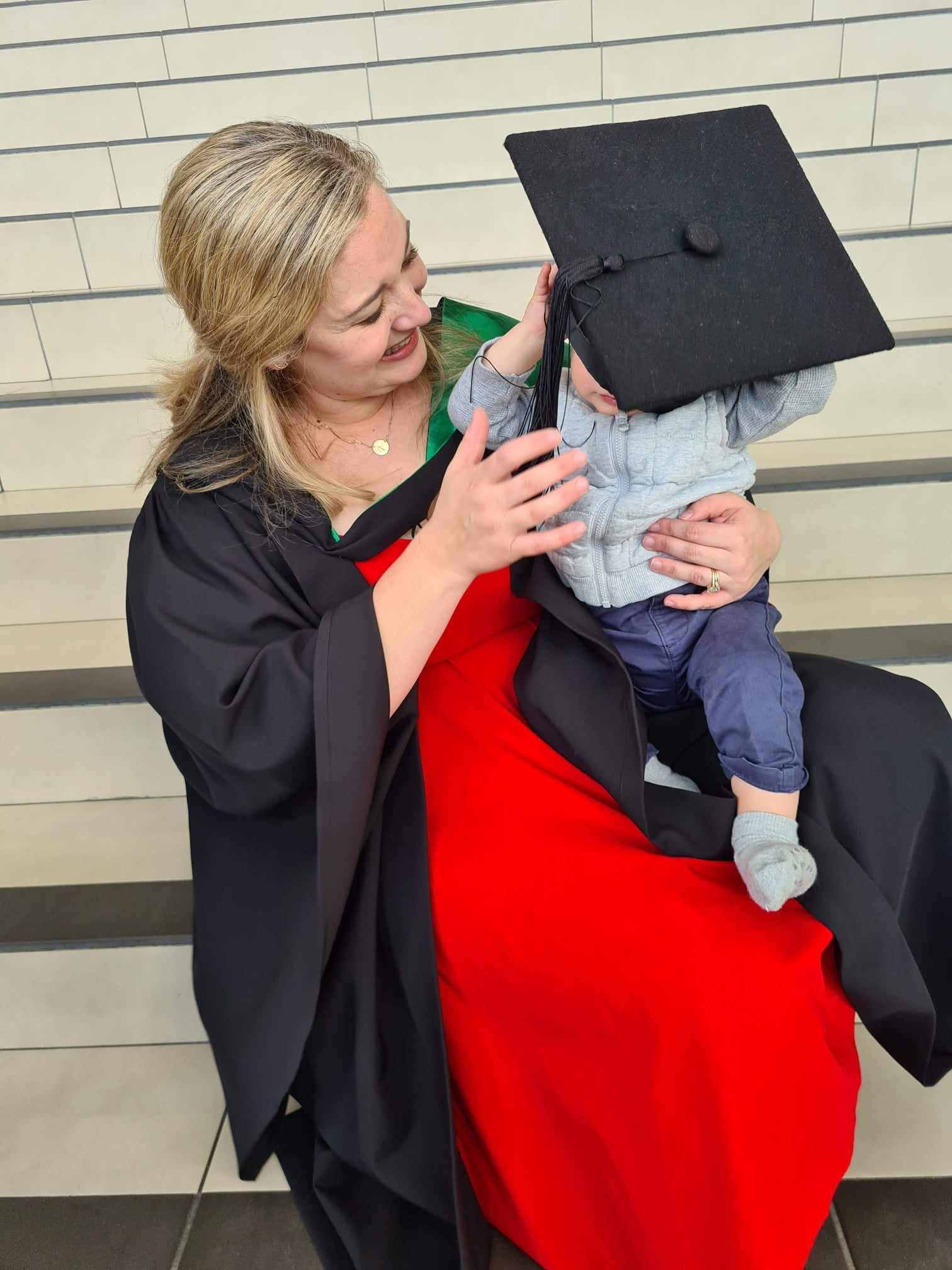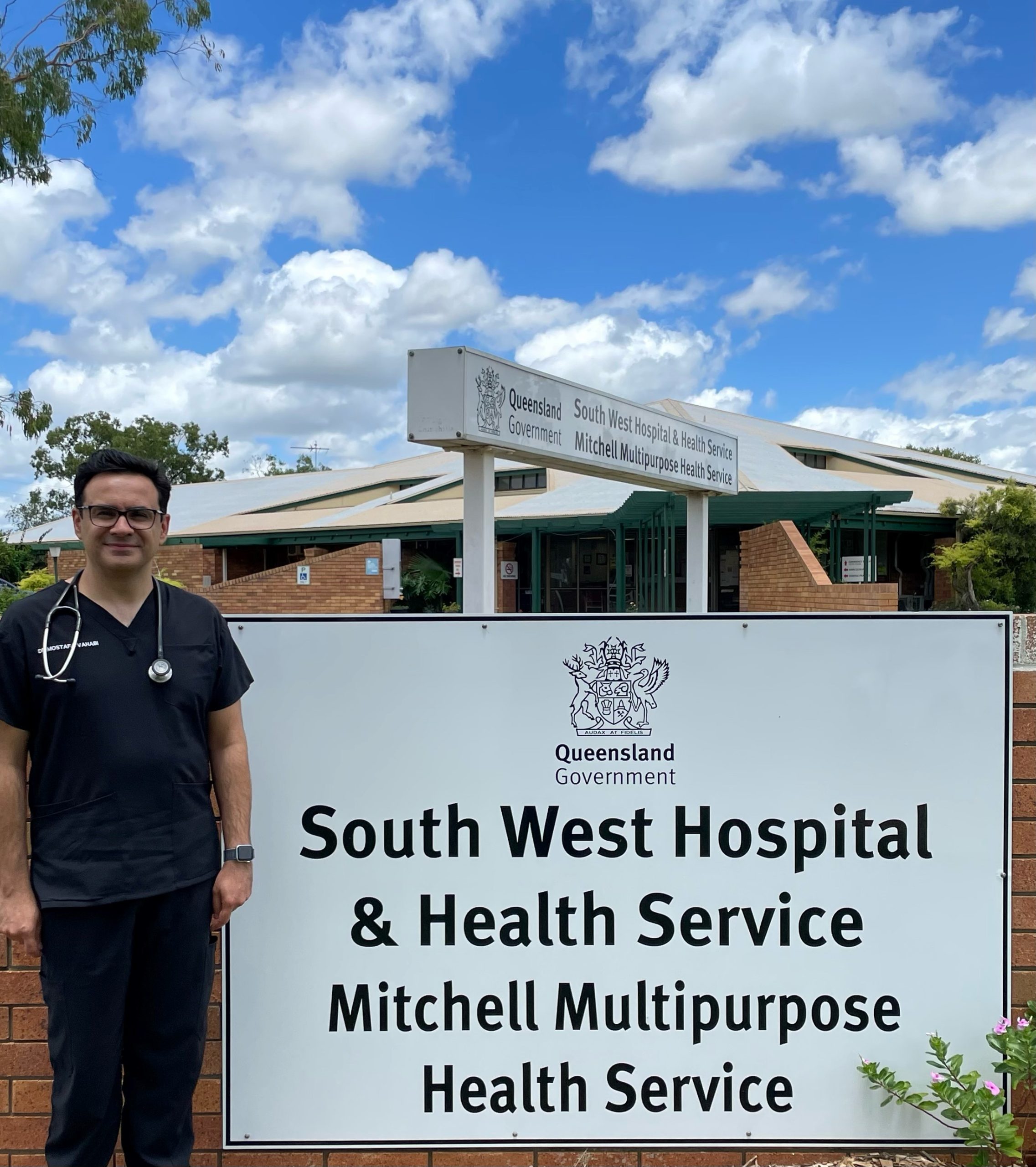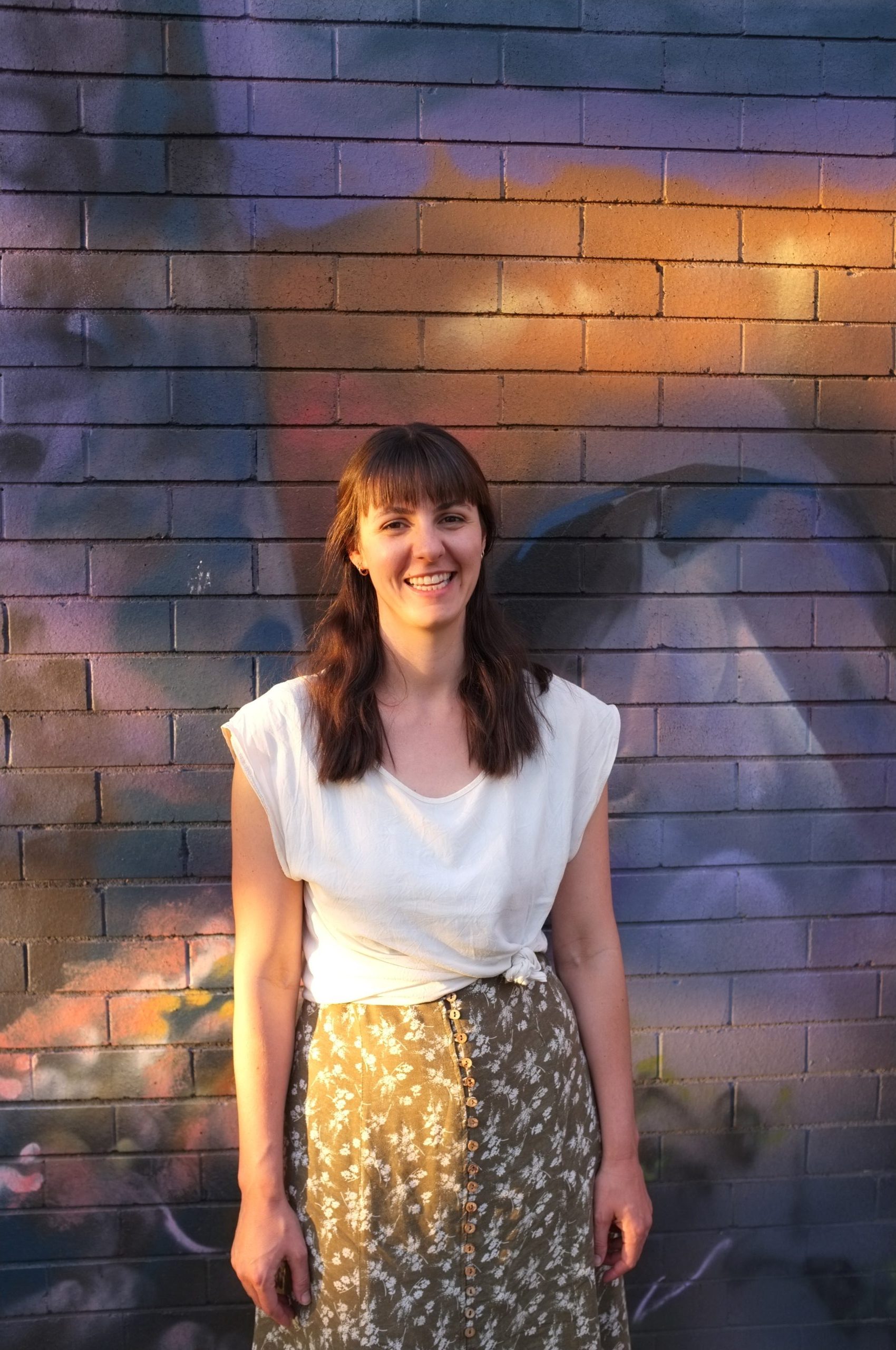Whether you grew up in a rural area or in a city, the journey to becoming a Rural Generalist is different for everyone.
Dr Jane McDonald is a QRGP trainee currently at the Sunshine Coast who was born and raised in Brisbane. Until her final year of medicine, Jane hadn’t been any further west than Toowoomba. In this blog Jane shares why she decided to embark on becoming a Rural Generalist and provides insight into what being a good rural doctor means to her.
City beginnings
I was born and raised in Brisbane, the youngest of four kids. There is no particular event in my life or reason why I chose to study medicine. Interestingly, besides my mother being an Occupational Therapist, I have no other family connection to the medical field. When I was around seven years old I was incredibly interested in the human body, and very determined to become a doctor. My parents were wonderful in always encouraging us to pursue our interests and what made us happy. For me, this was medicine and I’m so glad I decided to pursue it.
When I started medicine, I was very interested in surgery, particularly neurosurgery. At the time, I had minimal experience in any field and kept an open mind. I always envisioned that I would use medicine to help individuals, families, and communities.
My first taste of rural medicine
My first encounter with rural medicine was in my final year of medical school where I had the opportunity to organise my elective placement. I always dreamt of using this time to head overseas and serve a disadvantaged community, where their access to healthcare was different to the healthcare access I experienced growing up. But COVID19 threw a spanner in the works and my international placement dream halted. Instead, I decided to go rural. I knew this would put me out of my comfort zone and into regions that I had never experienced, and in places that don’t have a metro healthcare system. And I was right!
My first placement was in Blackall. I then headed to Charleville with the Royal Flying Doctors Service (RFDS), followed by Broken Hill, and for a week I went to Menindee which is about an hour outside of Broken Hill. Each placement progressively become more rural and I had such a wonderful experience at each place. I was exposed to people of differing backgrounds, beliefs, and perspectives. I was given the freedom to provide medical care in ways that I had not yet had the opportunity to do in metro areas. This included debriding and cleaning wounds, suturing, gaining a better understanding of rural health needs, and travelling to many regions which rarely have access to doctors.
My exposure to primary care placements as a medical student, in both rural and metro practices, enabled me to connect with patients through a holistic view – taking into account all aspects of their biopsychosocial health. This allowed me to develop a greater understanding of patient needs and requests, and provided me with an opportunity to improve their health literacy and medical understanding.
Rural generalism chose me
These rural experiences in medical school were eye opening. It made me realise just how much of a need there is for adequate, consistent, and frequent health care to our remote and regional communities.
Early in my rural placements (only about five weeks into the 3.5 months!) I decided that I would apply for the Queensland Rural Generalist Pathway (QRGP). I felt a sense of belonging in these communities and felt as though I was able to make a real difference. This was why I pursued medicine. I knew rural generalism was a great fit that would enable me to have a diverse and fulfilling career.
My intern year
As an intern last year, I completed a 10 week emergency (ED) term in Gympie and a five week term in Maleny. I loved Gympie ED so much that I will be returning there for seven months this year! It was great. I came across so many differing presentations and I was given a wide scope of practise. I love being able to work up a sick patient, discuss the patient with my seniors, and put in place a strong management plan. I also loved being able to put clinical skills into practice. The population of Gympie includes many farm and factory workers, meaning that there were quite a few related injuries that I was able to assess and ‘fix’.
You don’t need to be born rural to be a good rural doctor
Until two years ago I had never been west of Toowoomba! And on my first day of placement in Blackall, I had to ask a patient what ‘mustering’ meant (don’t laugh). I was exposed to a whole new world, but I found that having an open mind, asking questions, and communicating well allowed me to find my place in these communities and to be accepted. To me, this means I have developed a sense of trust and a strong rapport with these people, despite never having had their experiences during my upbringing. This connection allows me to provide them with adequate healthcare, which I think is at the forefront of being a ‘good’ rural doctor.
My advice to medical students
My biggest tip for medical students thinking of rural medicine, is to take the leap. Put yourself outside of your comfort zone. You’ll never know if you will or won’t like rural medicine unless you give it a shot. Go in with an open mind, don’t be embarrassed to admit when you don’t know or understand something. Ask questions! Rural folk are wonderful people and are always willing to help you learn.
My future
I have recently been accepted onto the Australian College of Rural and Remote Medicine (ACRRM), and I hope to be successful in obtaining my fellowship. In the future I hope to gain advanced skills in obstetrics and gynaecology or emergency medicine (still undecided…), so that I may make a positive contribution to rural Australia and provide patients with adequate, positive, and consistent healthcare.
I hope to make connections with rural communities and use primary care as an avenue to build a sense of trust to promote health literacy and healthy lifestyles which benefit a whole community. I also hope to have a house full of dogs that I can cuddle after a hard day and create a healthy balance between my work and personal life.
Dr Jane McDonald, QRGP trainee







